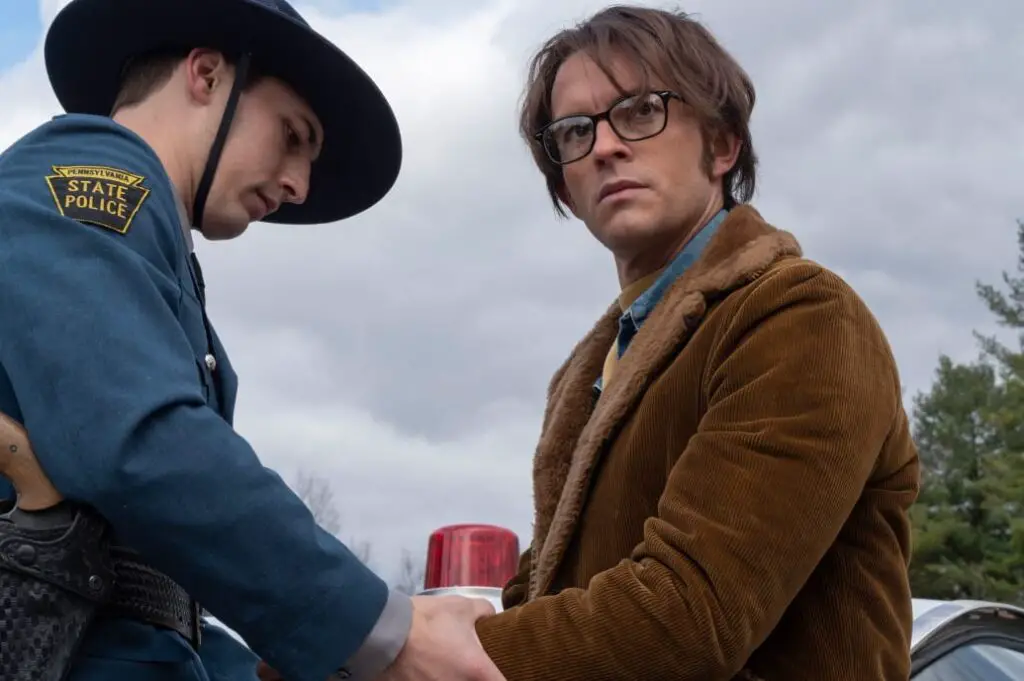As “Fellow Travelers” moves into its sixth episode, the pace shifts, offering a respite from the intense political drama of the 1950s and focusing more on the personal struggles of the main characters. The series adeptly navigates through time, bringing viewers to 1968, where the Vietnam War’s backdrop creates a new dynamic between the protagonists, Hawk and Tim. This episode, less charged with political tension, allows for a deeper exploration of the characters’ inner lives, especially Hawk, whose portrayal of a man leading a double life becomes increasingly complex.
During this episode, the contrast between Hawk and Tim’s perspectives on the Vietnam War becomes evident. Hawk, seemingly indifferent, maintains a low profile, hosting parties and focusing on his family life with Lucy and their children. In contrast, Tim’s involvement with anti-war activists highlights his proactive stance against the war, leading to a pivotal moment where he and his group are arrested for burning draft cards. This action rekindles Hawk’s involvement in Tim’s life, as he secretly bails Tim out, setting the stage for further conflict and emotional entanglement.
The episode further delves into Hawk’s secretive life, hinted at through the editing that juxtaposes flashbacks with current events. This narrative technique, though slightly challenging to follow, effectively reveals Hawk’s affair and its impact on his family, especially his wife, Lucy. The tension within Hawk’s family, particularly with his son Jackson, adds another layer of complexity to the storyline. A dramatic encounter between Jackson and Tim at Hawk’s hunting cabin intensifies the familial drama, culminating in a climactic confrontation between Hawk and Lucy.
This narrative arc in Episode 6 not only deepens our understanding of the characters but also sets the stage for the impending conflicts and revelations as the series progresses.
The Evolution of Hawk and Tim: A Journey Through Decades of Love and Struggle

“Fellow Travelers” presents a compelling narrative that spans several decades, intricately weaving the love story of Hawk and Tim with significant historical events, including the Vietnam War. Initially introduced in the 1980s, the series takes us back to their first meeting in 1952, laying the foundation for a complex and tumultuous relationship. The stark contrast between Hawk’s seemingly ideal life in the 1980s and his secretive existence in the 1950s is strikingly portrayed, highlighting the challenges faced by gay men during the Lavender Scandal era.
The series masterfully depicts the evolving relationship between Hawk and Tim, underscored by their differing views on love, politics, and personal identity. Their journey through the decades is marked by significant historical events, from the Vietnam War protests to the AIDS crisis, each era shaping their relationship and individual paths.
Tim’s character is particularly noteworthy for his emotional depth and development. His involvement with a supportive queer community in the 1980s, as he faces his AIDS diagnosis, contrasts sharply with Hawk’s increasing isolation. This difference underscores the impact of community and support in the lives of the characters, adding a layer of poignancy to the narrative.
Matt Bomer’s portrayal of Hawk is especially compelling, capturing the character’s complexity and inner turmoil with remarkable nuance. The series does not shy away from exploring the intricacies of queer relationships, presenting them with honesty and sensitivity. The depiction of the characters’ struggles, set against the backdrop of historical events, adds depth and relevance to the story, making “Fellow Travelers” a standout miniseries that resonates deeply with its audience.


